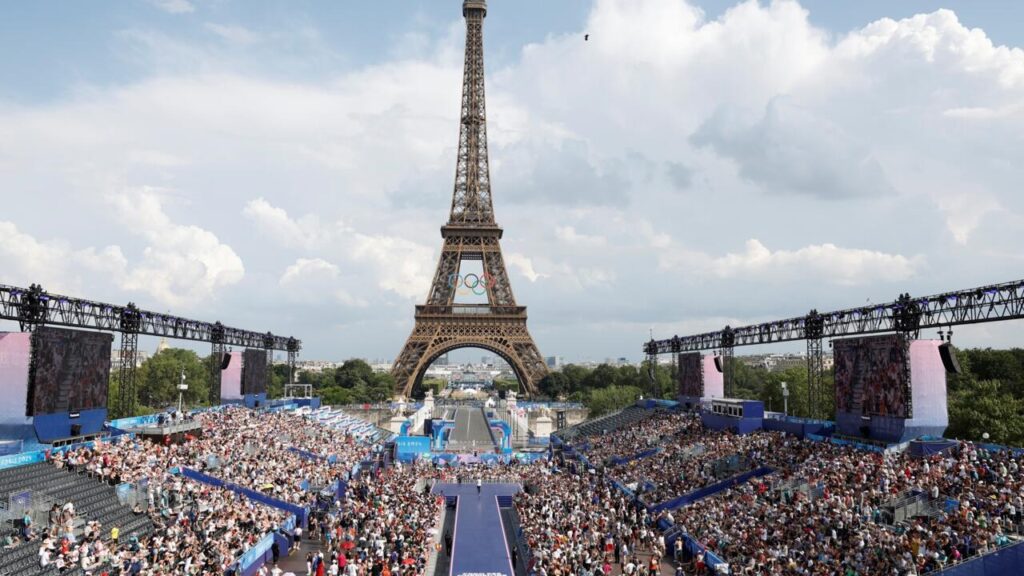Sparks Fly As New Era Dawns For Olympics & World Sport Following Year Of Paris Games And Global Change
January 22, 2025
Michael Pirrie looks at how key legacies and lessons from the Paris Games and major change in society and sport will shape Olympic and world sport agendas – from drug, gender and culture wars and IOC elections to the Trump effect on international sport.
With the first major sporting event of 2025 already entering its final stages at the Australian Open tennis grand slam – involving men’s world number one, Jannik Sinner, still awaiting a potential career defining court verdict after testing positive to a banned substance last year, and Carlos Alcaraz vying to become the youngest ever Career Grand Slam winner – the new year has started much like 2024 ended, in an unconventional age of sporting turbulence, uncertainty and exceptionalism.
The past twelve months have been era-defining for international sport and society, with new flashpoints, new governments, priorities, war zones, and new hope and heroes.
Taylor Swift’s Eras tour and a new Olympic Games era in Paris cut through the gloom and captivated the world against a backdrop of geopolitical conflict and change.
Swift’s pop concerts and the Paris Games were the biggest sports and entertainment events on the planet and lifted the mood of a world in crisis.
Gender tragedies, tensions and triumphs were prominent in society and sport.
The Swift shows attracted more women to concert events in history, and more women competed at the world’s foremost sporting event in Paris, in equal numbers to men for the first time, continuing the revolution in women’s sport.
Kenya’s Ruth Chepngetich took distance running into a new era, smashing the women’s marathon world record in Chicago by almost two stunning minutes.
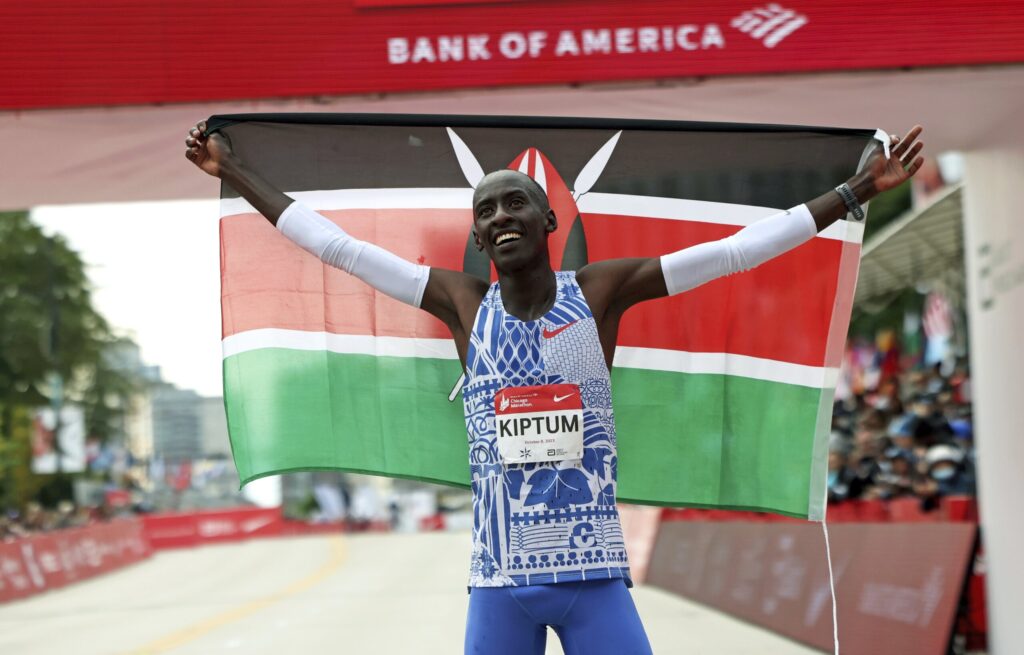
In one of the most moving performances of the year, Chepngetich dedicated the biggest moment of her career to late fellow Kenyan super runner Kelvin Kiptum, tragically killed in a car accident while training to create a new landmark in human and sporting history with the first sub two-hour marathon planned for the Paris Games.
Chepngetich’s heroic run, followed by the success of fellow Kenyan runners in the New York women’s marathon, also defied a recent pattern of violent killings of talented women athletes by their partners.
The spate of deaths – including Rebecca Cheptegei, who was murdered by her former partner after competing for Uganda in the Paris Olympic marathon – highlighted the urgency of new IOC regional safety hubs to address sensitive social issues at local levels, part of a growing global crisis in sport safety.
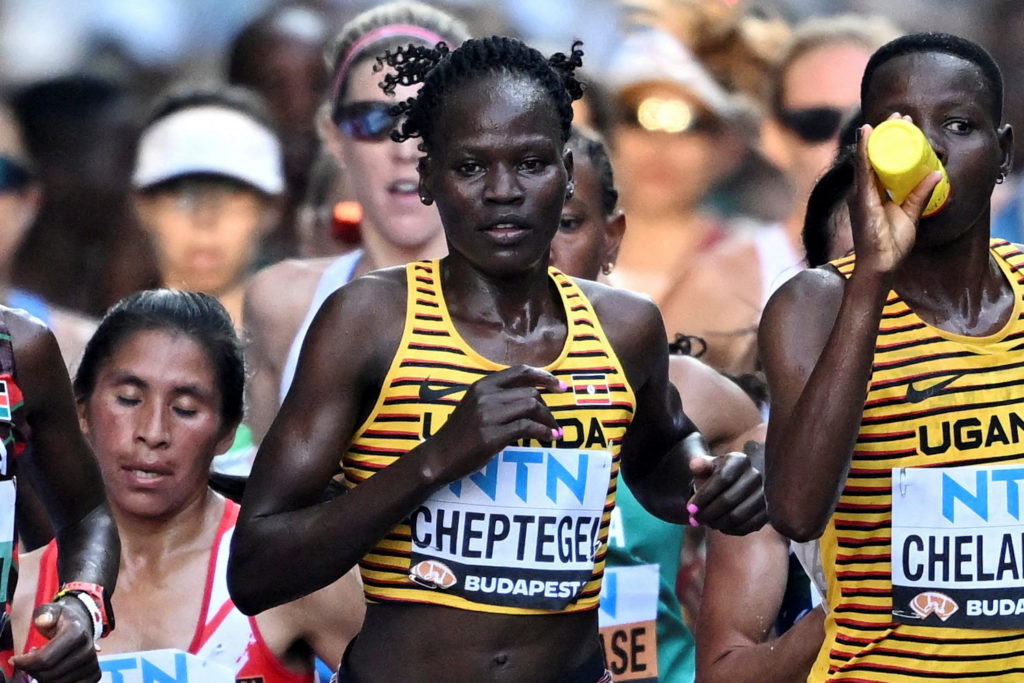
This was a year of new priorities and directions, and of new eras, beginnings and endings that will influence Olympic and world sport in the year ahead and well beyond.
Rafael Nadal’s retirement brought the curtains down on one of the most significant careers in modern sport.
While many tennis players and fans want to play like Roger Federer, most wanted to be Nadal, who always played with hope, sport’s most valuable commodity, even in the darkest times of Covid.
“I want to send a message to everyone around the world,” Nadal said during the pandemic. “We are facing one of the worst moments we can remember…Just keep going, stay positive and we will win the virus soon,” he said, in what could have been a mission statement for his epic career
Although Novak Djokovic leads Nadal in grand slam titles many believe Nadal’s victories have been more consequential and memorable.
These include the Spanish conquistador’s legendary win over Federer, delivered from the outer limits of sporting possibilities in the 2008 Wimbledon classic, regarded by many of the game’s greatest as the greatest game.
Meanwhile, the LeBron James era seemed ageless, the Lakers legend stretching his NBA career from teenager to still playing like a teenager at 40.
There has been much to marvel at in world sport over the past year and much of it was on display in Paris. It seemed more records were set than Apple pressings of a lost Beatles collection.
Every successful Olympic host needs a national hero and Leon Marchand’s two individual gold medals in one session of wondrous swimming may have been the performance of the Games and sport in 2024.
Spain won the Euros, but France was the team of the year, its record medal haul wrapping the vivid blue, white and red of the French flag from the Austerlitz Bridge opening ceremony motif warmly around the host nation in Olympic fervour.
STORIES OF SPORT, MEDALS & HOPE
As well as sporting excellence, athletes in Paris transcended the circumstances of their times and lives.
Exactly 80 years after the liberation of France began on D-Day, and with extreme right wing anti-immigration groups and antisemitism on the rise in Europe again, the descendant of a Holocaust survivor won an Olympic medal in race walking for Australia, finishing in the shadows of the Eiffel Tower that beckoned as a beacon of freedom to her grandmother while escaping the Nazi horrors eight decades earlier.
Meanwhile, Team USA basket baller Brittney Griner won gold in the last event of the Games after recovering from a dramatic prisoner swap ordeal involving a convicted Russian arms dealer following her abduction shortly before Putin invaded Ukraine.
These were stories of hope the world was longing to hear and more than 80 per cent of global audiences tuned in.
Paris had global impact because it connected with its times.
The key Games themes, programs and issues –including peace, gender, sustainability, environment protection, refugees, urban renewal and social media – connected with the lives, conditions and struggles of many in the nations viewing and participating in Paris.
Paris 2024 also brought a new model and new life to the Olympic Games and major international events in a volatile world.
While the driving rains that drenched the opening ceremony were a hallmark of changing climate conditions, the Paris Games helped to change the political climate and outlook
Games venues resembled sports concerts and arenas filled with much-loved and wildly applauded, ear-piercing performances that changed the vibe in world sport
Paris venues, neighbourhoods, boulevards and bars were filled as host city residents refused to yield in fear to terrorist groups, attacks and threats that had stalked France in recent years nor to the unrelenting violence of Russia’s murderous war on Ukraine.
Paris relied on a rare mix of famed locations and existing stadiums, multipurpose venues, and temporary sites, with no new Olympic Park venues complex, a high-cost cornerstone of previous Games.
While the majestic landmarks of Paris showcased sport in dramatic ways, they also highlighted the benefits of using existing venues, stadiums and public spaces for Games events, lowering construction budgets and carbon emissions and helping to contain soaring venue and infrastructure costs that had deterred cities from hosting.
The Paris Games plan was successfully based around the London 2012 Games model that moved sports and athletes into the heart of the city and surrounding venues, public spaces and buildings with iconic backdrops
“I told myself it was not worth putting the whole city in motion, under stress, if we bid on the Games and lost again,” Paris Mayor Anne Hildago told media before the Games.
“Then the athletes came to me, they told me, ‘We have ideas, we have studied how London knew how to win.’ ”
While Paris 2024 was a successful showcase of the new venue hosting model and ensured no ‘white elephants’ were left behind, major event experts say Olympic planners will need to be flexible in applying the new model.
“If every host city or nation is restricted to utilising majority existing venues, then you’re also restricting the number of global cities that are actually equipped to host the Games,” said James Bulley, of Trivandi, a leading specialist international venue and events company
“It is therefore critical that the ‘why’ is driving the hosting of the Games,” said Bulley, who oversaw the venue and legacy masterplan for the London 2012 Games.
“The core focus should be on how the Games can be intrinsically linked to a city and country’s overarching vision and objectives to ensure maximum impact and legacy for the host.”
Integrity was the key issue across the sporting world.
As well as a test of the IOC’s new venue model, Paris was also a test of the Olympic values and who gets to compete at those Games venues – athletes convicted of child sexual assault; gender different athletes; or athletes from a nation committed to eradicating the population and way of life of a peaceful sovereign neighbouring Olympic nation.
IOC restrictions and bans by World Athletics on Russian athletes and teams helped to protect the integrity of the Paris Games from Putin’s apocalyptic war on Ukraine, whose Olympic teams, depleted by war fallen athletes, became a global symbol in Paris of the human spirit’s capacity to endure and survive, even as the Kremlin conducted mass murder operations in the stricken nation just three hours away from the Games.
This has further hardened international opposition to Russia’s return to the world sporting stage that Putin covets to project his nation and image of power.
These were major moments for Paris that will also loom as turning point issues for governing bodies, federations and other stakeholders involved in Olympic events and organising committees this year and beyond.
New doping concerns surfaced following revelations of positive drug tests involving Chinese swimmers who were cleared to compete, prompting an international outcry about transparency and inconsistencies in anti-doping procedures.
While criticisms of WADA alleging Chinese bias have been strongly dismissed by independent experts and observers familiar with the anti-doping code as geopolitically targeted, there have also been high level discussions about major changes to the system later this year.
These include possible identification of athletes under investigation before final tests have concluded and widening responsibility for violations from athletes to support and entourage staff
The above matters will also be part of the in-tray for the next IOC president, along with the eligibility process for women athletes following the boxing furore in Paris.
While the process failed everyone in Paris and should have been settled before the Games, the International Boxing Association’s financial and political links and loyalties to the Kremlin, severely complicated and compromised the process and event
The controversy has become a major test of diversity, fairness, and safety amid fears of ‘chromosome doping’ in elite women’s sport.
The fall-out from the women’s boxing competition has also become a front-line issue in the IOC presidential campaign, with candidate calls led by Seb Coe to protect the women’s category with measures based on biological truth not trends.
The sex and gender identity firestorm also comes at a sensitive time when the sports world is trying to anticipate the Trump effect on international sport.
THE TRUMP EFFECT
This follows the recent US elections in which issues surrounding transgender and gender diverse students, athletes and sport divided communities and voters.
Commenting on the Paris women’s boxing incident, Trump said he would fight to prevent men competing in women’s sports, and has already signed executive orders on his first day in office declaring that only male and female sex categories will be recognised.
The Paris gender furore also comes as sports leaders are trying to better understand and plan for sensitive political sports scenarios involving major events taking place during the Trump presidency, especially the LA ’28 Olympic and Paralympic Games.
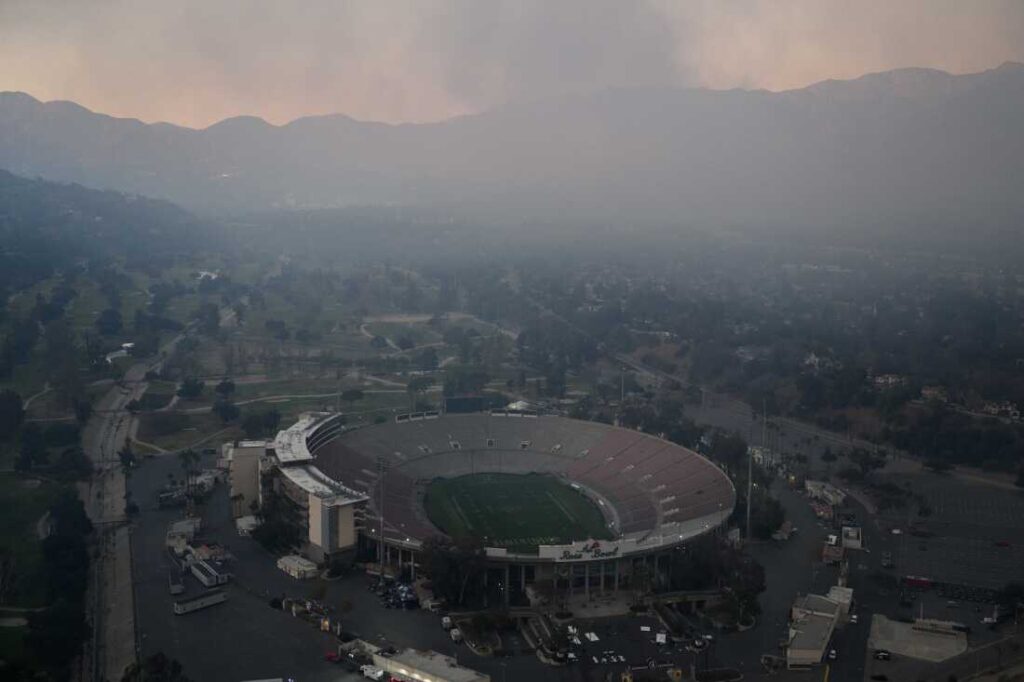
These will include issues around Games security, which will be the most comprehensive in major events history following the recent New Orleans terrorist attack, assassination attempts on President Trump, US foreign policy and actions of nations in the Middle East and other geopolitical hot spots.
These issues will also include climate and environment protection measures to protect LA Games venues, facilities and infrastructure following recent ‘end-of-world’ wildfires, along with the strained political relationship between the host California Democrat Governor and President Trump.
Other sensitive issues in Trump’s United States for international sporting leaders may include visa restrictions on designated high-risk nations; and funding and autonomy of WADA following a dispute involving US law makers and domestic and world anti-doping agencies over the Chinese swimmers cleared to compete following positive test results.
There is also some early anxiety around possible Trump Whitehouse attempts to link and promote Trump’s MAGA political agenda with Team USA at the LA Games, taking place during the next US presidential election year
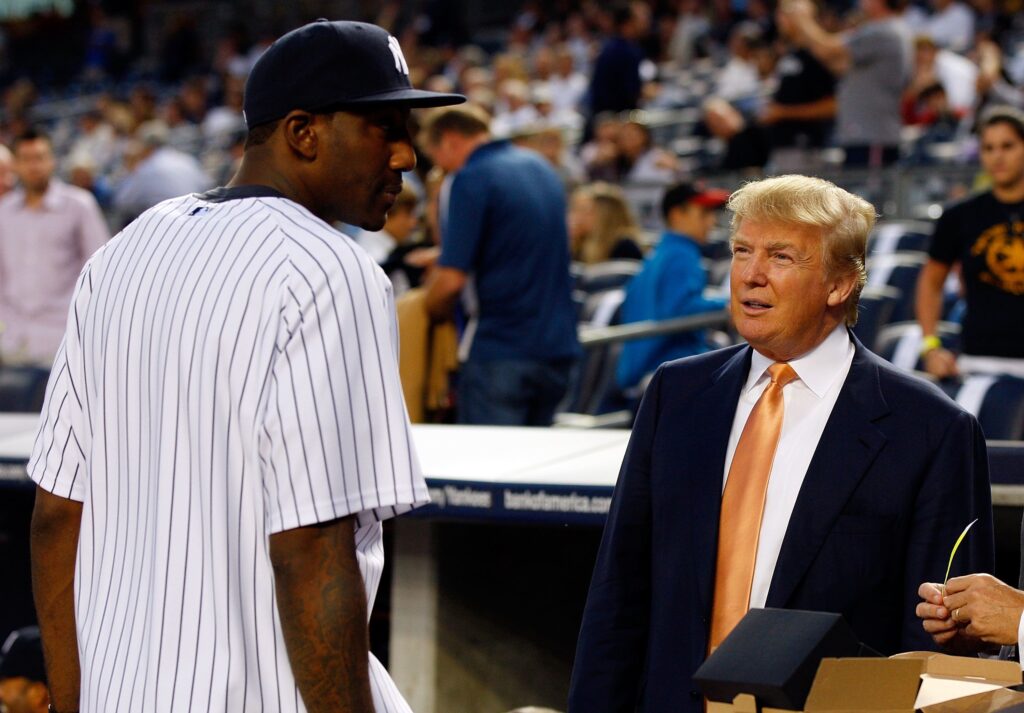
These and other issues will be paramount for the next IOC president to maximise revenues from the LA Games in the world’s wealthiest nation and sports market, which recently witnessed a new, record shattering 15-year contract for a major league baseball star worth $765 million.
This is a market place where players with the NBA Cup Championship team also recently pocketed $400,000 each in prize money alone, while some Paris medallists from other nations still live with their parents to survive in the Olympic system.
FOLLOWING SPORT’S NEW MONEY TRAIL
While Paris heralded a major shift in the geography and shape of the Games based around existing and temporary venues, further major reforms around core Games programs are also likely with IOC presidential candidates foreshadowing changes in revenue critical programs for athletes and sports programs worldwide
These are likely to include new streaming services and broadcasting categories and changes to the structure and activations around the TOP program, with some senior IOC members even suggesting possible partner arena branding.
The Paris Games has dominated world sport and the business of sport, generating $ 7.6 billion in revenues for the (2021-’24) Paris cycle, providing a daily lifeline injection of $4.7 million to assist athletes and sporting organisations and development around the world.
Following sport’s money trail means following sport in the Middle East, where the biggest deals are being done as Saudi Arabia continues to pump vast sums of money into global sport to transform its post oil economy, society and dark human rights record.
NEW & CONTRASTING VISIONS FOR WORLD’S BIGGEST SPORTS EVENTS
The world’s two biggest sporting events and governing bodies also embraced divergent paths and visions for the future of their flagship events in 2024.
While the IOC committed to a more sustainable and affordable lower carbon Olympic Games in Paris, FIFA approved plans for what is likely to be the most expensive sporting event ever staged, centred around multiple new multi-billion-dollar stadiums in Saudi for the 2034 World Cup, the biggest prize awarded in world sport in the past year.
The almost incomprehensible costs of the new futuristic weatherproof desert stadiums have fuelled fears of an international major events underclass unable to compete with Saudi.
The new Fifa World Cup venues will also form the centrepiece of Saudi’s Olympic Games bid, its ultimate stated goal to conquer world sport and overcome historic political and cultural constraints limiting Saudi’s wider participation in international society.
LANDMARK OLYMPIC ERA ENDS
Paris ended the Thomas Bach Games presidency era, which traversed some of sport’s most treacherous landscapes, supported by long-time senior vice president and Games strategist John Coates, architect of the Sydney 2000 Games which has become the overarching planning template for Games this century.
This was a pivotal era in outcomes for the Olympic Movement and world sport.
If the Olympic Movement depends on a pool of high-quality cities willing to stage the Games, then halting a sharp decline in host bids has been the greatest success of the Bach-Coates term, stretching the host city pipeline out to 2034 in Salt Lake City with bids already in development from India and other nations for 2036
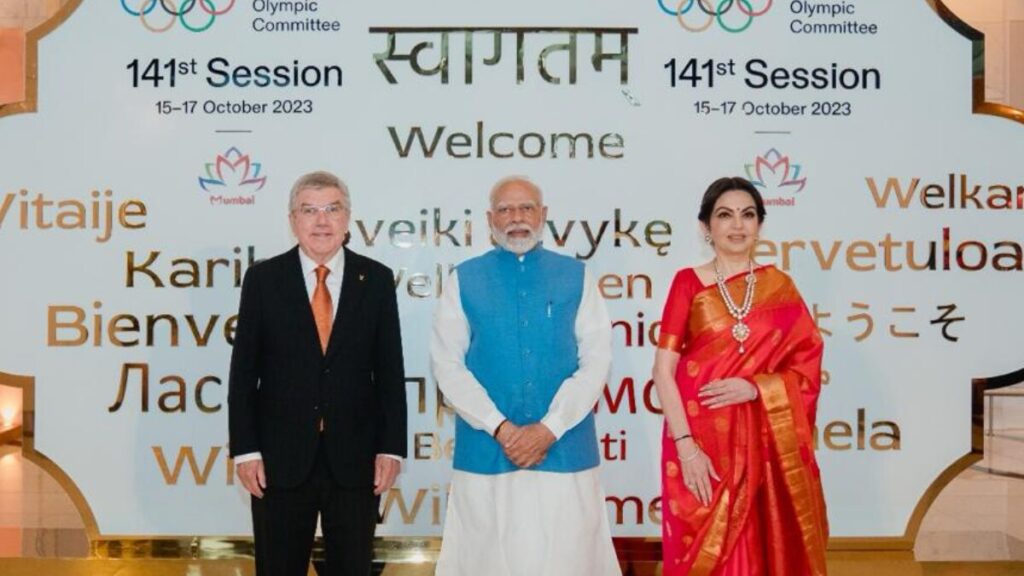
Russia’s covert doping program was the greatest scandal – and most dangerous – to confront sport in the Bach era, leading to a suspected murder plot involving a Russian agent against senior honorary IOC member and former WADA boss, Sir Craig Reedie, after he and expert investigators helped to expose the massive scale of secret doping and cheating at the heart of Russian sport.
Reedie’s high-risk work would lead to pioneering oversight, scrutiny, and monitoring reforms and requirements on athletes worldwide, helping to restore stability and confidence in sport.
The pandemic was the greatest challenge of Bach’s or any previous era or administration.
The safe delivery of the Tokyo Games and billions in funding for Olympic sports and programmes was also one of the most significant outcomes, against a backdrop of Covid doomsday scenarios.
The Tokyo Games, overseen by Coates, as IOC coordination commission chair, was one of the most notable international achievements of the pandemic era, involving the cooperation of more than 200 Olympic nations, following the discovery of a vaccine, which made Tokyo possible.
CONCLUSION
The Olympic Movement seems more self-assured and confident in its broad strategic vision, direction and financial outlook – with secured IOC revenues for future Games reportedly totalling around $13.5 billion – after the Bach era.
Lessons from the Paris Games are now being closely analysed by future Summer Games committees in Los Angeles and Brisbane and other mega international event organisers.
Providing rich venue and competition environments for athletes to perform at their best and electrifying viewer and spectator experiences was fundamental to the success of the Games and its impact on the world.
Paris now joins Sydney and London as preeminent Games of the era, successfully blending the key features of those two landmark sporting events – the electrifying sports party atmosphere of Sydney and grandeur and spectacle of London – with the sweeping history and spirit of France.
This has been a major coup for the French and Paris governments, IOC President Bach, and Executive Director Christophe Dubi, who has played a key role with Bach, Coates and other IOC executive board members in providing more youthful, urban and inclusive culture and programs within the Olympic Movement and Games sports.
Paris provided a unique opportunity to bring the Games back to the home of its founder Pierre de Coubertin, who reimagined the ancient sporting festival as an international event dedicated to peace and helped to change the world.
Paris showed how much the world has changed the Games, with gender wars and cyber abuse protection for athletes.
Paris 2024, tellingly, also highlighted the continuing global relevance and appeal of de Coubertin’s Olympic Games and timeless values and vision for sport as a symbol of peace, even 100 years after the French capital last hosted the Games in his city.
***Michael Pirrie is a major events and communications specialist who has worked in senior positions for major international events, including London 2012 Olympic Games as executive advisor to the British Government’s Olympic organising committee


